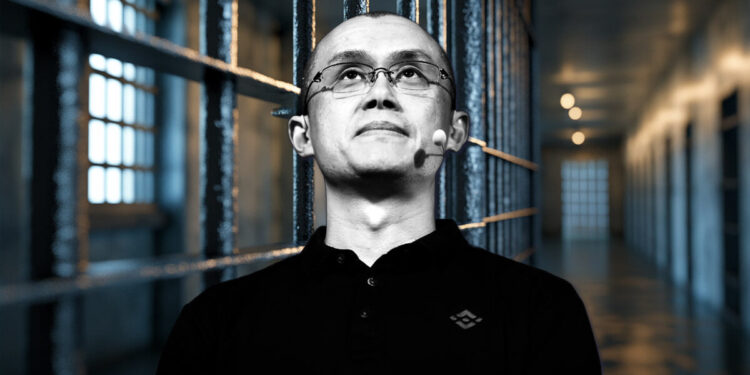Changpeng Zhao, the co-founder of Binance, is expected to be released from US custody on September 29, as indicated by the US Federal Bureau of Prisons.
Zhao is currently serving a four-month sentence, following his recent transfer to the Long Beach Residential Reentry Management (RRM) facility in Central California. These facilities serve as local federal prison liaisons, aiding inmates who are close to release by coordinating with federal courts, the US Marshals Service, and local corrections.
Zhao’s Legal Challenges
Changpeng Zhao’s legal complications began in November when he and Binance admitted to violating US federal regulations. The allegations stated that Zhao did not implement a sufficient anti-money laundering program, as mandated by the Bank Secrecy Act.
Furthermore, it was alleged that Binance facilitated transactions associated with illicit activities, including interactions involving US citizens and parties in sanctioned territories, such as Iran.
Settlement Outcomes
- Binance was fined $4.3 billion.
- Zhao agreed to pay $50 million personally.
- Zhao resigned as CEO of Binance but maintains an estimated 90% stake in the company.
Ongoing Issues for Binance
While Zhao’s legal challenges are winding down, Binance continues to face significant legal issues. Recently, the US Securities and Exchange Commission (SEC) submitted an amended complaint against the exchange, reiterating claims of violations of federal securities law.
SEC’s Allegations
The SEC contends that Binance plays a pivotal role in the cryptocurrency market by redistributing and amplifying information from issuers and promoters. The Commission further accused Binance of promoting digital assets that it lists and trades by sharing relevant details such as asset development, trading volumes, and price information.
Additionally, the SEC stands firm in its belief that Binance’s token, BNB, was marketed and sold as a security. They emphasized that customers, employees, and investors operated under the expectation that the value of BNB would rise due to the actions of its issuers and promoters.
This development occurs even after a previous court ruling that dismissed certain charges related to the secondary sale of BNB by third parties.
Related Topics
This rewritten article maintains a unique perspective while effectively reorganizing the content with appropriate headings, subheadings, and bullet points for better readability.




